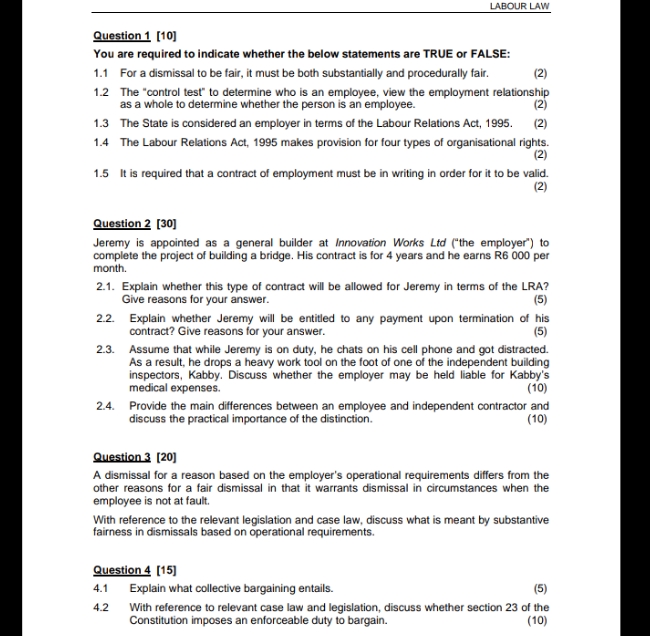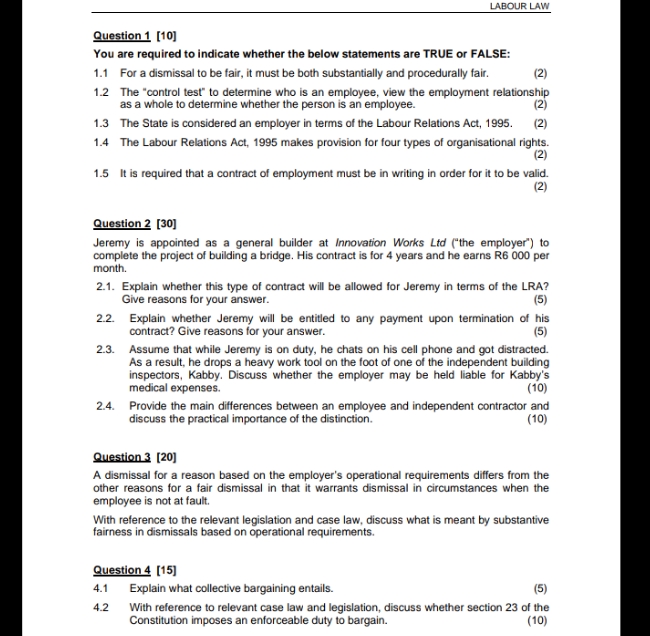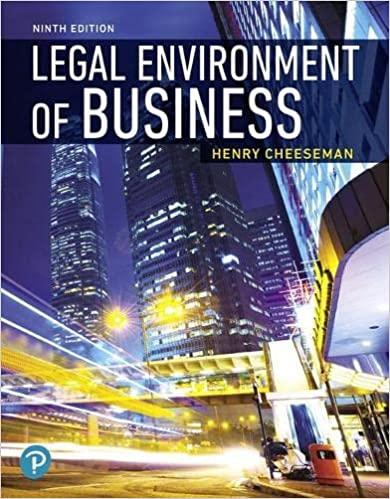
LABOUR LAW Question 1 [10] You are required to indicate whether the below statements are TRUE or FALSE: 1.1 For a dismissal to be fair, it must be both substantially and procedurally fair. (2) 2 The "control test" to determine who is an employee, view the employment relationship as a whole to determine whether the person is an employee. (2) 1.3 The State is considered an employer in terms of the Labour Relations Act, 1995. (2) 1.4 The Labour Relations Act, 1995 makes provision for four types of organisational rights. (2) 1.5 It is required that a contract of employment must be in writing in order for it to be valid. (2) Question 2 [30] Jeremy is appointed as a general builder at Innovation Works Lid (the employer") to complete the project of building a bridge. His contract is for 4 years and he earns R6 000 per month. 2.1. Explain whether this type of contract will be allowed for Jeremy in terms of the LRA? Give reasons for your answer. (5) 2.2. Explain whether Jeremy will be entitled to any payment upon termination of his contract? Give reasons for your answer. (5) 2.3. Assume that while Jeremy is on duty, he chats on his cell phone and got distracted. As a result, he drops a heavy work tool on the foot of one of the independent building inspectors, Kabby. Discuss whether the employer may be held liable for Kabby's medical expenses. (10) 2.4. Provide the main differences between an employee and independent contractor and discuss the practical importance of the distinction. (10) Question 3 [20] A dismissal for a reason based on the employer's operational requirements differs from the other reasons for a fair dismissal in that it warrants dismissal in circumstances when the employee is not at fault. With reference to the relevant legislation and case law, discuss what is meant by substantive fairness in dismissals based on operational requirements. Question 4 [15] 4.1 Explain what collective bargaining entails. (5) 4.2 With reference to relevant case law and legislation, discuss whether section 23 of the Constitution imposes an enforceable duty to bargain








